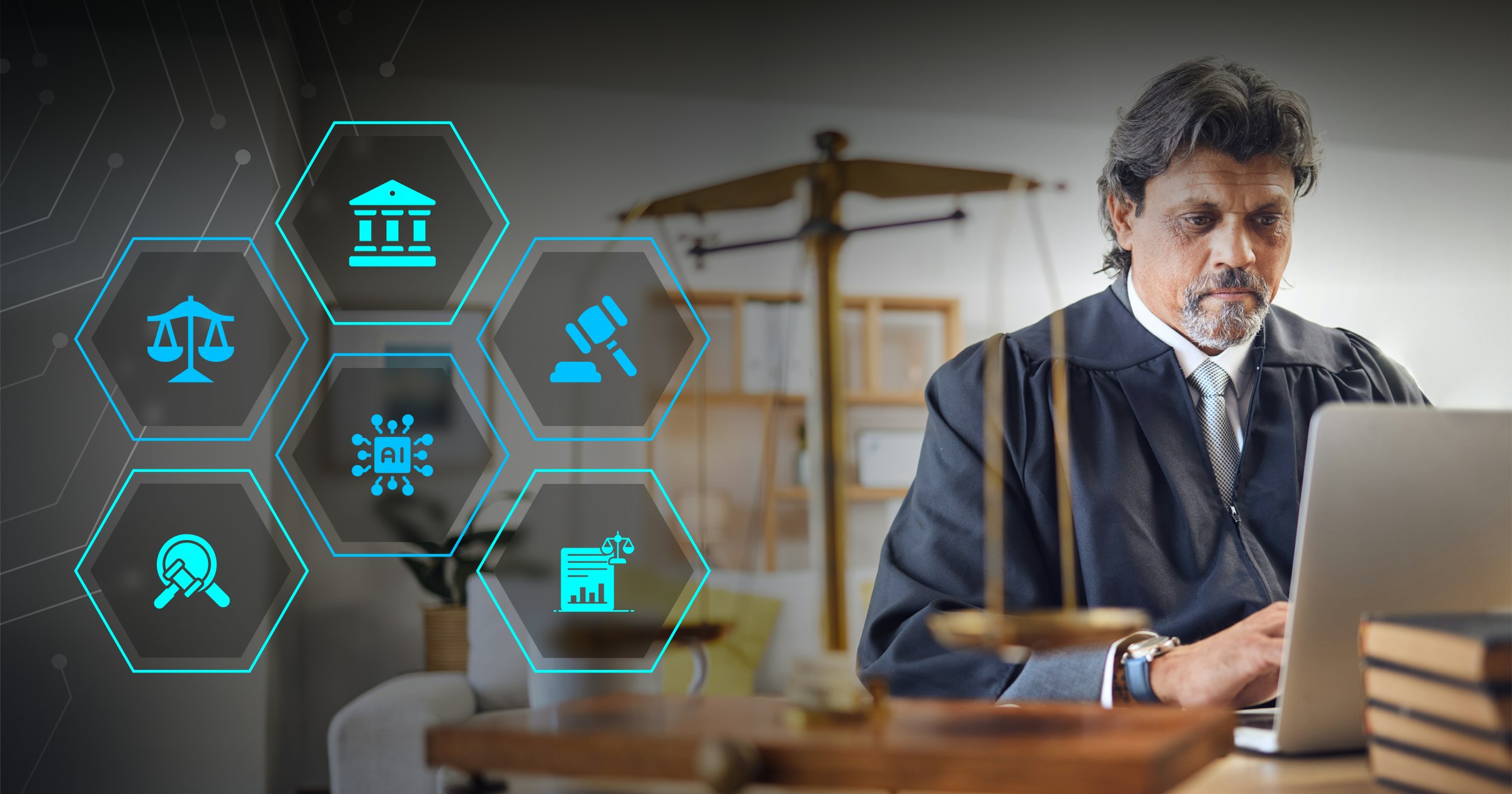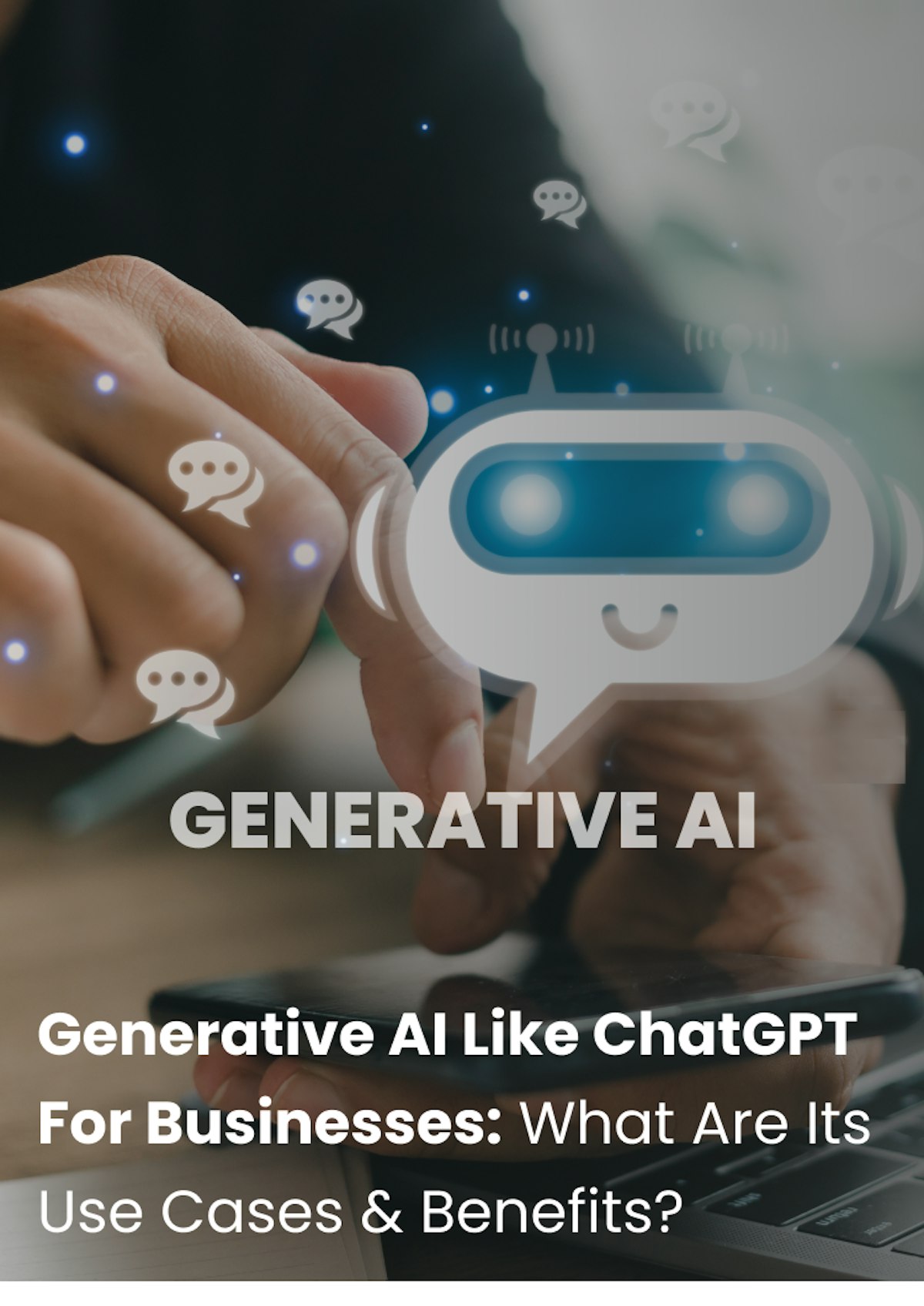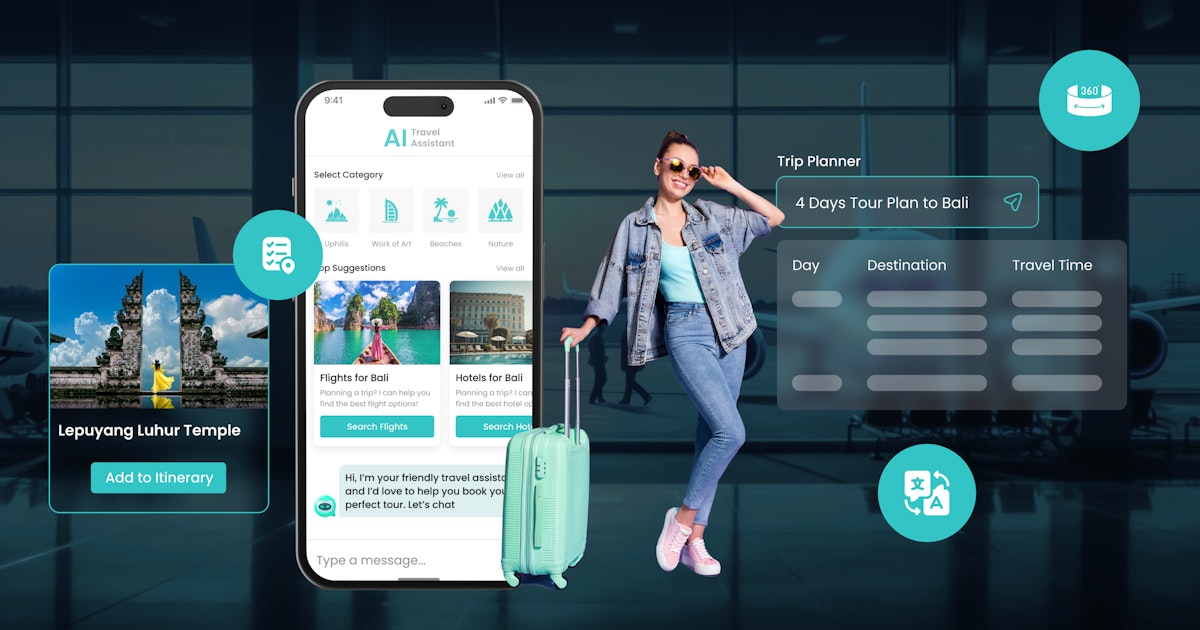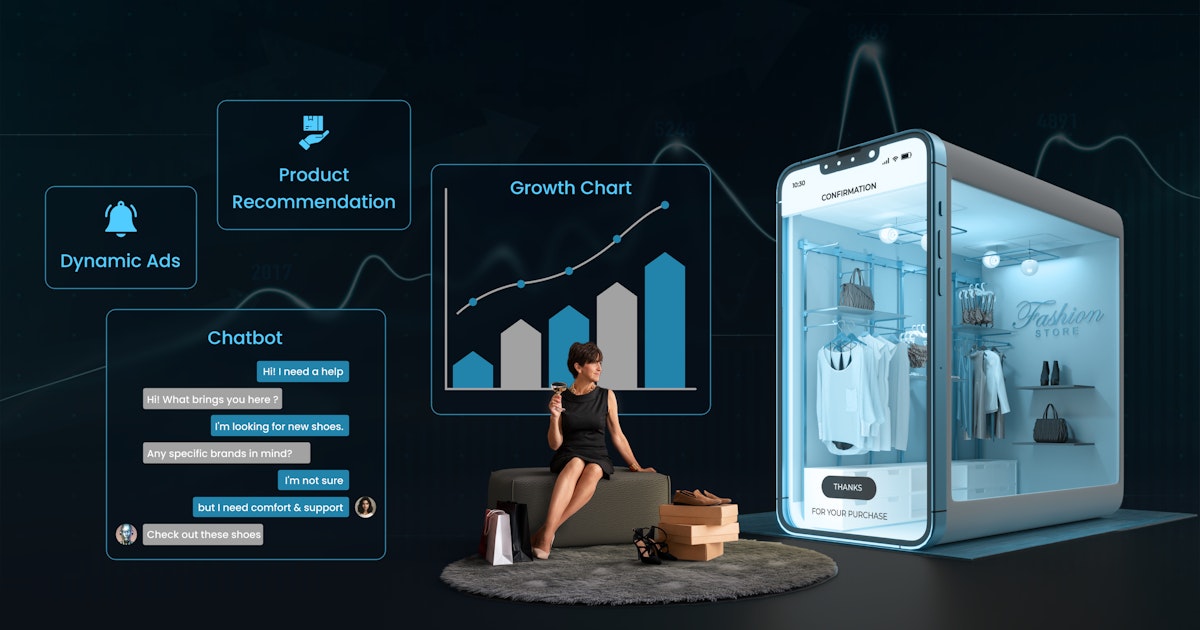Table of Content
Doing legal work traditionally drowns lawyers in documents and processing while limiting their intellectual and physical energy. 67% of in-house lawyers feel buried with low-value work, hindering their strategy creation and client service.
However, with generative artificial intelligence, According to Deloitte, 44% of legal tasks can be automated, like generating draft texts, summarizing documents, etc. Even better, GenAI can predict legal outcomes and help lawyers explore various angles to build strategies and win cases.
Key takeaways
Lawyers are drowned with paperwork and too much focused on routine tasks, eating up their efficiency.
Generative AI automates legal processes, freeing up time for more strategically important tasks.
GenAI unlocks insights by predicting outcomes and amplifying human expertise.
5 Impactful Use Cases of Generative AI for Lawyers
Lawyers need not worry about AI taking over their jobs, as human expertise and guidance are critical to the success of AI in legal practice. However, by adopting generative AI in the practice of law, lawyers can enhance the value of their work.
1. Boost legal research efficiency with Generative AI assistance
The traditional legal research methods are time-consuming as sifting through hundreds of legal documents related to case law, legislation, etc., is required. But using generative AI, it's easier for a lawyer to do the following;
a. Quickly scan large amounts of legal databases
GenAI can identify relevant legal material and documents from a large database with unprecedented speed and high accuracy. Let's assume that a lawyer needs to research case law on data privacy regulations in California. GenAI scans a database of thousands of legal documents and identifies 20 relevant cases in a few seconds. It helps lawyers save hours of manual searching and allows them to focus on in-depth document analysis.
b. Summarize complex legal materials in seconds
Generative AI can save valuable time for lawyers by quickly grasping key points of voluminous documents, contracts, and judgments. For instance, if A lawyer receives a 50-page contract for a client review. AI generates a 2-page summary highlighting essential clauses, key actions or obligations, potential issues, main legal arguments, court analysis & legal decisions, and key precedents in 30 seconds.
c. Predict legal outcomes
Focusing on prior rulings, counsel history, key facts of the case, and current legal frameworks, GenAI can predict legal outcomes. For example, A lawyer represents a client injured in a car accident. The AI will scan and analyze the accident info, witness statements, medical records, and similar past cases based on factors like accident type, severity of injuries, jurisdiction, and witness reliability.
Based on the above data, AI predicts a chance of winning at trial or a favorable settlement. This empowers the lawyer to advise the client on realistic options, negotiate effectively, and prepare for various contingencies.
Automate Your Legal Research with Generative AI!
Explore Services2. Automate contract analysis to minimize contractual risk
GenAI can automate contract review and summarization, a repetitive task in the legal field. Even the most experienced lawyers will require time to scan the entire contract.
a. Identify key contract clauses and potential legal risks
Long and wordy contracts have crucial clauses buried within the documents and are easy to miss. Using AI-powered systems, lawyers can streamline contract analysis to pinpoint crucial clauses and detect potential risks such as intellectual property (IP) ownership, termination clauses, or data privacy obligations. For instance, it can review an NDA to identify boilerplate clauses, confidentiality obligations, etc.
b. Compare contract terms across documents
Legal AI tools can analyze multiple contracts to identify deviations and contractual terms inconsistencies. Let's say, A law firm representing clients in a merger deal uses AI to compare multiple NDAs from both parties. It highlights inconsistencies in confidentiality terms and exclusivity clauses, allowing for proactive negotiation and protection of client interests.
c. Automatically extract relevant information
Through effective reviews of large volumes of documents and contract analysis, an AI tool can successfully reduce manual processes and improve data accuracy.
Suppose A lawyer advises a client on a potential financial acquisition. The AI tool extracts key financial metrics, financial ratios, debt covenants, dispute resolution processes, and legal provisions from various contracts and reports. It will help lawyers create a comprehensive data sheet for informed decision-making.
3. Draft legal documents faster than ever
AI can supercharge the repetitive document drafting process while offering a solution to overcome the limitations.
a. Generate first drafts based on templates and user input
Generative AI, using its natural language processing (NLP) capabilities can also generate client-specific legal drafts, and a lawyer can populate the draft with contract details, saving hours of time and significant resources. For instance, a lawyer can draft a lease agreement quickly based on pre-selected templates and user-provided information like property details, rental fees, and lease duration.
b. Suggest language and phrasing
Employ AI programs to suggest alternative wordings in a contract to ensure clarity and avoid ambiguity, flagging potentially risky clauses based on legal precedents.
c. Identify potential errors
AI-powered error detection to correct grammar, add legal citations, and improve formatting. Lawyers can run their documents through AI tools and set their primary goals to reduce the risk of mistakes. These programs can catch hidden and subtle inconsistencies, spot legal errors, and even identify biases based on pre-trained language models.
4. Stay updated with rules and regulations
Using Generative AI, lawyers can stay updated with the legal developments that occur in the legal industry, facilitating quick and relevant changes to their strategies.
a. Stay up-to-date with legal changes
Changes in GDPR, CCPA, HIPAA, and the legal framework in a country are difficult to track. GenAI emerges as a powerful tool for lawyers to stay updated with the changes, identify compliance risks, and guide the professionals accordingly.
A legal team uses a generative AI to scan vast amounts of data to track changes in GDPR and automatically generates summaries of relevant updates. This saves the majority of lawyers' time that was previously spent manually scanning legal documents.
b. Identify potentially non-compliant activities
When fed with internal and external organizational data, AI tools can identify potential breaches, faps in regulations, effectively preventing costly penalties. Let's say an AI tool analyzes a healthcare company's data and identifies potential HIPAA violations related to patient data sharing. This allows the company to address the legal issue before incurring fines.
c. Guide employees on compliance requirements
AI can help create customized training programs ensuring effective compliance across all departments. A legal department uses generative AI to create personalized compliance training modules based on each employee's role and risk profile. This increases legal employee engagement and knowledge retention.
5. Facilitate patent searches & get instant trademark reports
The field of Intellectual Property (IP) is labor and research-intensive, requiring a thorough analysis. Hence, GenAI is emerging as a game-changer in this field allowing lawyers to give relevant and updated legal advice along with leveraging their human expertise.
a. Conduct patent searches
Explore vast patent databases through interactive research capabilities and using natural language processing queries. Instead of manually searching every database, using AI to do the same significantly reduces the time and effort required.
The Lens: A generative AI tool that employs natural language processing to conduct patent searches across multiple databases simultaneously. It allows lawyers to input queries in natural language and receive relevant results quickly.
b. Generate trademark availability reports
AI’s research capabilities can help entrepreneurs and businesses extract insights into brand protection feasibility. In other words, lawyers assisting startups in setting up their trademarks can utilize AI to check the availability of similar brands in key markets across the globe.
Corsearch: A generative AI tool specifically designed for trademark searches and monitoring. Let's assume, A lawyer advises a client on launching a new clothing brand. "Cosearch" helps check for similar trademarks globally, allowing them to choose a unique brand name before investing in marketing.
c. Analyze complex licensing agreements
Getting a license in any field is highly sophisticated and intricate. Failure to comply with these requirements can lead to legal proceedings, but it can be avoided by using Generative AI to have concise overviews of the licensing requirements.
Using AI tools, lawyers can gain a comprehensive understanding and even explore potential outcomes of not following the licensing requirements. However, be sure to check the AI tool you use for its accuracy, comprehensiveness, and quality of the database used for the purpose.
Best Generative AI Tools for Legal Research, Document Analysis & Drafting
- Casetext CoCounsel: Specializes in legal research, document review, and contract analysis.
- LexisNexis Lexis+ AI: Offers AI-powered legal research and analytics.
- Thomson Reuters Westlaw Edge AI: Provides AI-enhanced legal research and litigation analytics.
- ROSS Intelligence: Focuses on legal research and document analysis.
- Kira Systems: Excels in contract analysis and due diligence.
- Luminance: Offers AI-powered document review and legal analytics.
- Clause: Specializes in contract automation and management.
- Evisort: Provides AI-powered contract analysis and management.
These tools leverage generative AI to assist with various aspects of legal research, from case law analysis to contract review. They can significantly speed up research processes and provide valuable insights.
Let's Integrate Generative AI Into Your Legal Operation!
Let's Get StartedOver to you
From predicting legal outcomes, drafting documents, and understanding compliances, Generative AI empowers lawyers to work smarter, not harder. It can help save time on tedious tasks giving them time to focus on strategic thinking and providing effective services to the client.
73% of lawyers plan to use GenAI to improve their legal work.
If you are a lawyer ready to boost legal efficiency and gain a competitive edge with generative AI:
Book Your Free 45-minute Consultation with Our AI Experts Today!
During this personalized consultation, our team will:
Assess your legal firm's AI readiness
Recommend generative AI applications that fit your specific practice areas and client needs
Give you a tactical plan to integrate AI seamlessly into your existing legal practices






